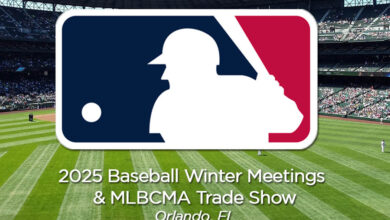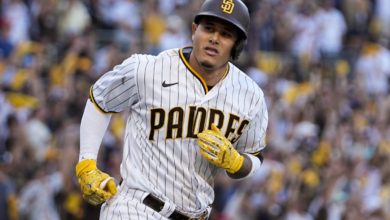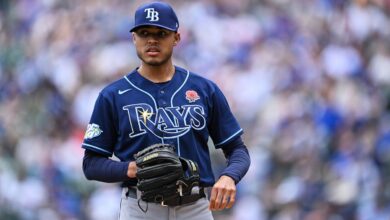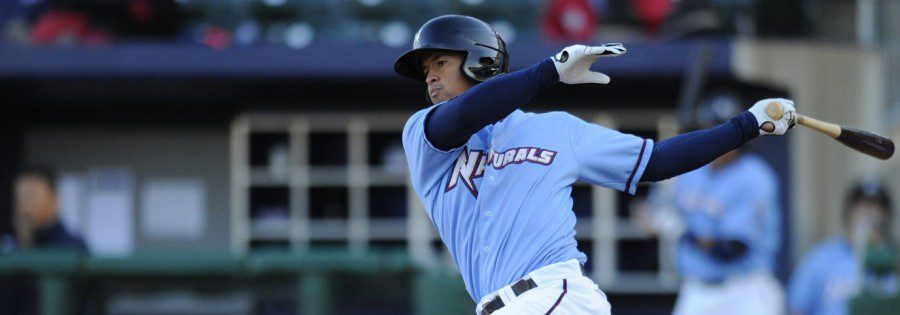

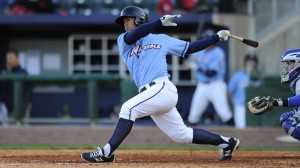
I know most sports-minded folks are focused on football and which teams are going to the Super Bowl. Good for them. But for die-hard baseball fans who have suffered over the long winter, we are about to get our first fix of the new year. I’m referring to the Caribbean Series, the Latino extravaganza that oozes patriotic pride on par with the World Baseball Classic.
Puerto Rico will host defending-champion Mexico along with Venezuela, the Dominican Republic and Cuba on February 2-8 at San Juan’s aging but intimate Hiram Bithorn Stadium. As usual, many of the games will be aired on ESPN Deportes. And even if you don’t understand Spanish, the spirited atmosphere on the field and in the stands is worth a quick look while you’re flipping channels.
It bothers me though, that only winter programs affiliated with Major League Baseball are supposedly eligible to play in this round-robin affair. If that stipulation is true, why was Cuba allowed to crash the party last year? If the rules are going to be tweaked, why not change the format and invite eight teams divided into two groups to enhance the competition? It makes perfect sense to me, which is why it probably will never happen.
The apparent lack of respect for Central American talent is also troubling, especially since baseball is the national sport in both Panama and Nicaragua. Where was the love when the Nicaraguan boys won a silver medal in Mexico last November during the Central America-Caribbean Games? Look, I get it. Kids in this region are dirt poor, and kicking a soccer ball seems more appropriate economically than gearing up to step on the diamond. Then again, the resilience of Nicaraguans to play their favorite pastime is something you have to see with your own eyes.
The International Baseball Academy of Central America (IBACA) is an organization under the umbrella of the International Baseball Association, and its sole purpose is to develop young prospects in Nicaragua. Bob Oettinger is a chief spokesman for the group and is nuts about “Nica” baseball. Some of his own personal experiences have a lot to do with it.
“We were down there on a recent trip and traveling on a rural road when we see a group of kids, some in uniform and some not, walking toward this open pasture,” recalls Oettinger. “We watched as they herded some cows away in order to make room and start their game.”
The IBACA had plans to make a big splash in Nicaragua back in early 2010. Through a third party, it bought 25 acres of land adjacent to the Gran Pacifica Beach Golf Resort with the intention of building a plush baseball academy. The blueprint called for two regulation fields, eight pitching mounds, multiple batting cages and training quarters with a weight room and other necessities. There were also plans to construct dorms in addition to classrooms offering computer and vocational skills.
Clearly, this was a project unprecedented in Nicaragua. The only other complex close to comparison was the Academia de Beisbol Nicarguense, which is affiliated with the republic’s iconic former pitcher, Dennis Martinez. Could this new venture have been a competitive threat to Martinez and his business? Of course not. Were people apathetic about helping the less fortunate? I would hope that wasn’t the case. But the fact remains that this seaside “field of dreams” has yet to become reality.
“We were counting on outside funding at a time when the economy was down,” says Oettinger, a public relations pro who founded a terrific charity, Celebrity Outreach, in 1989. “Nobody wanted to invest in a foreign country.”
With the academy construction now on hold, the IBACA has now shifted gears to concentrate on individual sponsors for Nicaraguan youngsters, many who have excelled during various clinics headed by former big league star Reggie Smith. The organization has expanded its scope to gain non-profit status in the states, and has donated an estimated three tons of equipment to Nicaraguan youth leagues. It is also negotiating with different professional teams there to secure workout facilities.
Through its subsidiaries, the IBACA is well-connected with all 30 MLB teams and offers a possible baseball future for the right candidates starting at 14 years of age. An annual $6,000 sponsorship includes housing in the capital city of Managua, food, gear, school supplies, transportation, a personal trainer and a security guard. Baseball is the theme, but learning English, life skills and cultural awareness is emphasized.
“We want to give these kids an opportunity to be successful in whatever career they choose,” notes Oettinger.
That said, some quality players have emerged out of Nicaragua in recent years. In the old days, the only players representing the flag were speedy outfielder David Green and the aforementioned Martinez, who logged 23 years in the major leagues. Now you can point to relief specialist Wilton Lopez, who will bank $2.2 million with the Toronto Blue Jays this season. Everth Cabrera, 28, was an All-Star shortstop with the San Diego Padres until he was dogged with injuries and legal issues. And Erasmo Ramirez, only 23, could have a shot to crack the Seattle Mariner’s starting rotation this spring.
There seems to be a pipeline of Nicaraguan pitchers headed for the great northwest. Hector Hidalgo signed with Seattle in 2012 and is being groomed as a potential closer. And I really like Mariner prospect Kevin Gadea, a 6′-5″ string bean who was still a teenager until last December. Remember that name. Once this kid grows into his lanky body and tunes in his control, Gadea will quickly shoot up the ladder. Then there’s Cheslor Cuthbert, the highly touted prospect with the strange name who will be scrutinized closely this season by the Kansas City Royals coaching staff. Strong and athletic with decent power, Cuthbert will likely remain in the minor leagues for part of the year because the Royals don’t know where to put him defensively. The 6′-1, 190 pound youngster is blessed with soft hands, a plus arm and can play first, second or third base. Cuthbert signed as a 17-year-old international free agent and hails from the Corn Islands, a little-known Caribbean hideaway that underscores Nicaragua’s geographic baseball diversity.
In the near future, I’d like to see the IBACA expand its adventures into Guatemala, where older youth teams have had success during tournaments abroad. After all, the words “Central America” are part of the organization’s name. It would probably be wise, however, to first get established and rolling in Nicaragua. Hell, even president Daniel Ortega is a huge baseball fan. And unlike the Dominican Republic where kids look at “pelota” as their best ticket off the island, Nicaragua is a place where the sport remains in its purist state. It’s where baseball is still played for the love of the game.


